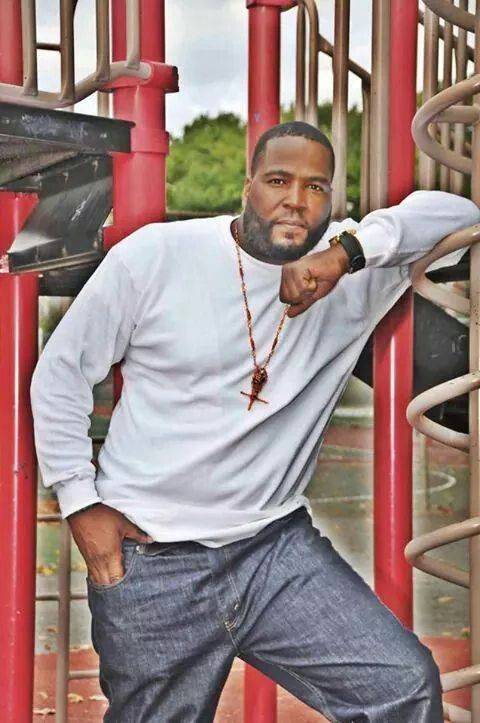In a riveting episode of the RWay Podcast aired on April 1, 2025, host SB welcomed Dr. Umar Johnson, a Philadelphia-born Pan-Africanist and psychologist, to Miami for a conversation that crackled with insight and urgency. What began as a casual catch-up quickly morphed into a masterclass on global economics, cultural identity, and the path to Black empowerment, leaving listeners both challenged and inspired.
SB, proudly Jamaican, opened with a question that cut to the chase: Why are Chinese interests surging in the Caribbean and Africa, regions once dominated by European and American powers? Dr. Johnson leaned into history, explaining that when colonial rulers withdrew, they installed East Indian and Chinese communities as economic gatekeepers to keep Black populations in check. “It was a deliberate buffer,†he said, ensuring financial power stayed out of African hands.
He then fast-forwarded to China’s modern ascent, sparked by Mao Zedong’s shrewd revolution. Instead of chasing original inventions, China perfected replication-churning out affordable cars, phones, and clothes that hooked the world’s poorest consumers. “They turned the planet into their Walmart,†Dr. Johnson quipped, contrasting this with Western capitalism’s focus on luxury goods. Now, he argued, China’s grip tightens through Africa’s minerals and the Caribbean’s strategic ports, a calculated play for global dominance.

The Theo conversation hit close to home when SB spotlighted Jamaica, where Chinese firms have built highways and snapped up ports, pocketing tolls for decades under government deals. Dr. Johnson didn’t hold back: “Why bring in Chinese engineers when your own universities produce talent?†He decried the shoddy work-roads crumbling within years—and warned of a creeping takeover. “Jamaica’s revolutionary spirit makes it a prime target,†he said. “If China conquers that island, the whole Caribbean could fall.†He pointed to similar patterns in Africa, where Chinese loans trap nations into handing over assets-like Uganda’s lost port-and even cited intermarriage as a stealth colonization tactic, urging Black governments to enact protective laws.
The discussion pivoted to politics when SB probed Dr. Johnson’s distrust of voting. “I’ll vote when there’s a real choice,†he shot back, arguing that Black communities rarely reap rewards from elections. Unlike other groups who negotiate benefits upfront, he said, “We vote out of fear-scared of what might happen if we don’t.†He contrasted this with Jewish, Latino, and Arab voters, who secure tangible gains, while Black Americans get promises that evaporate post-election.
Education took center stage as Dr. Johnson unveiled his flagship project: the Frederick Douglass Marcus Garvey Academy (FDMG) in Delaware, set to launch in August 2024. Initially an all-boys school-expanding to girls within years-it’s designed to instill pride and practical skills in Black youth. Beyond classrooms, it’ll serve as a community nexus, hosting Black business expos, parenting workshops, and even a “conscious singles convention†for woke romantics. “We’re crafting a global African school district,†he declared, dreaming of branches from Miami to Accra, all funded solely by Black dollars.
Dr. Johnson’s cultural critiques were razor-sharp. He branded hip-hop a “cancer†for peddling destruction without uplifting communities, challenging rappers to build banks or hospitals instead of handing out “dusty turkeys†on holidays. On reparations, he endorsed land restitution over cash, citing a California family who reclaimed stolen property only to sell it back cheap. “We need a tribunal to recover every acre taken,†he insisted, prioritizing structural shifts-like policing and education reform-over fleeting payouts.

Controversy flared as he tackled hot-button issues. He slammed marijuana legalization as a scheme to flood streets with toxic, synthetic strains-“the new crackâ€-and predicted a crisis dwarfing opioids. On Dwyane Wade’s support for his child’s gender transition, he called it a “spiritual tragedy,†linking it to population control agendas, a stance rooted in his child psychology expertise. He also mourned the loss of trade skills in Black high schools, blaming unions and de-industrialization for unemployment and drug epidemics.
History pulsed through the dialogue. Dr. Johnson debunked myths of Black inferiority, tracing African roots across civilizations-including China’s-and affirmed pre-Columbian African presence in the Americas. “Every race evolved from us,†he said, urging Black folks to reclaim power so others proudly claim their heritage. He tied today’s struggles to slavery’s legacy, noting how federal policies-like denying Black families housing loans-paved the way for gentrification.
The podcast brimmed with bold takes: democracy as a “scam†to pacify the powerless, artificial intelligence as a job-killer risking revolt, and digital currency as a revolution-squelcher. He speculated on sinister motives-like Bill Gates buying farmland to grow immune-targeting crops-and mourned icons like Whitney Houston and Tupac, hinting at industry murders over publishing rights.
SB and Dr. Johnson reflected on Martin Luther King Jr. and Malcolm X, revealing their thwarted alliance-cut short by assassinations orchestrated to halt an economic revolution. The host marveled at Jamaica’s global defiance, crediting reggae for fueling movements like Nelson Mandela’s, while Dr. Johnson nodded: “That unapologetic spirit makes them a threat.â€
As the episode wound down, Dr. Johnson rallied listeners to back FDMG, ditch distractions like weed and religion, and forge a service-based economy. “We’ve got $2 trillion in America alone-where’s our Black Wall Street?†he demanded, pushing for self-reliance over government handouts. He shared contact info-215-989-9804, paypal.me/fdmgacademy-inviting parents, educators, and dreamers to join his historic mission.
This wasn’t just a podcast-it was a wake-up call, blending fiery critique with a roadmap for renewal. Dr. Umar Johnson’s voice, unfiltered and unrelenting, demands attention, whether you’re nodding along or shaking your head.


